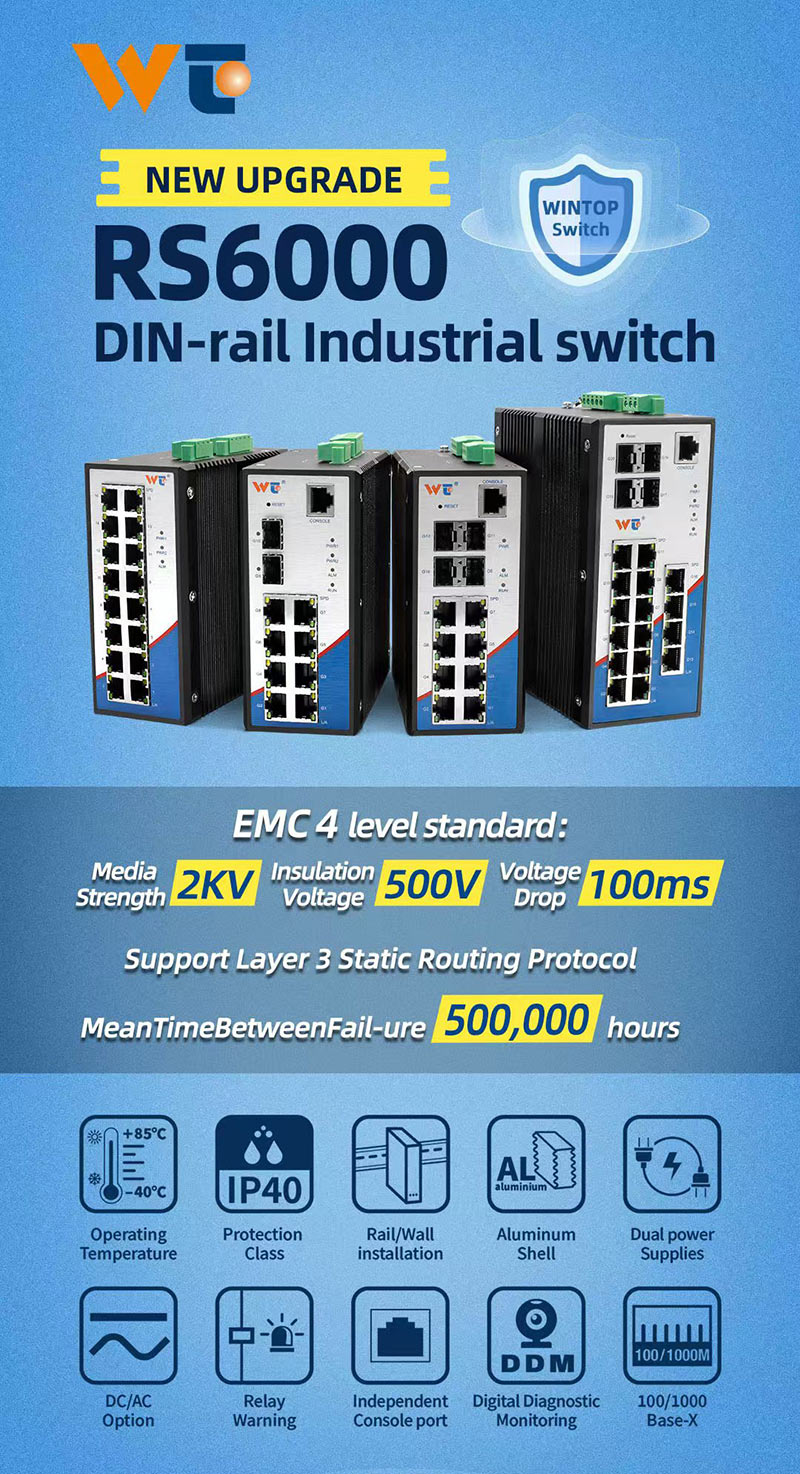Enhancing System Reliability in Power Monitoring
In the increasingly interconnected world of industrial automation, the reliability of power monitoring systems is paramount. With the surge of smart grids and intelligent infrastructure, ensuring uninterrupted and accurate power monitoring has never been more critical. This article delves into the essential strategies to enhance system reliability, highlighting the pivotal role of industrial switches in achieving efficient data transmission and stable connections.
The Importance of Reliable Power Monitoring
Power monitoring systems are the backbone of modern industrial operations. They provide critical insights into energy consumption, detect anomalies, and ensure the seamless operation of machinery and processes. A reliable power monitoring system can prevent costly downtimes, enhance efficiency, and contribute to the overall safety of industrial environments.
Consider a manufacturing plant that relies on continuous power supply for its production lines. Any disruption in the power monitoring system can lead to undetected power fluctuations, causing machine failures, production halts, and significant financial losses. Therefore, enhancing the reliability of these systems is not just a technical necessity but a business imperative.
Industrial Switches: The Unsung Heroes
At the heart of a reliable power monitoring system lies efficient data transmission and stable connections. This is where industrial switches come into play. Unlike standard switches, industrial switches are designed to withstand harsh environments, including extreme temperatures, humidity, and electromagnetic interference. Their robust construction and advanced features make them indispensable for ensuring continuous and reliable data flow in power monitoring systems.
For instance, in a power plant, industrial switches facilitate the real-time transmission of data from various sensors and meters to the central monitoring system. This real-time data is crucial for detecting and responding to power anomalies promptly. Without industrial switches, the data transmission could be erratic, leading to delayed responses and potential system failures.
Case Study: A Power Plant Success Story
To illustrate the impact of industrial switches on system reliability, let's look at a real-world example. A large power plant in Germany was facing frequent disruptions in its power monitoring system due to electromagnetic interference from heavy machinery. These disruptions were causing inaccurate readings and delayed anomaly detection, posing a risk to the plant's operations.
By integrating industrial switches into their monitoring network, the plant was able to achieve stable and efficient data transmission. The switches' rugged design and advanced filtering capabilities minimized the impact of electromagnetic interference, ensuring uninterrupted data flow. As a result, the power plant saw a significant reduction in system downtimes and an improvement in overall operational efficiency.
The Role of Redundancy in Enhancing Reliability
Redundancy is a critical factor in enhancing the reliability of power monitoring systems. It involves incorporating backup components and systems that can take over in case of a failure. Industrial switches support redundancy through features like dual power inputs, redundant ring protocols, and failover mechanisms.
In a smart grid network, for example, redundancy ensures that if one switch fails, another can seamlessly take over, preventing any disruption in data transmission. This continuous availability is crucial for maintaining the integrity of power monitoring systems and ensuring that any issues are promptly identified and addressed.
Future-Proofing Power Monitoring Systems
As technology evolves, so do the challenges and requirements of power monitoring systems. Future-proofing these systems involves adopting scalable and adaptable solutions. Industrial switches, with their modular design and advanced functionalities, provide the flexibility needed to accommodate future expansions and technological advancements.
Consider an industrial facility planning to integrate renewable energy sources into its power grid. The flexibility of industrial switches allows for easy integration of new devices and systems, ensuring that the power monitoring system remains reliable and efficient even as the network grows and evolves.
Conclusion: Building a Reliable Future
Enhancing the reliability of power monitoring systems is a multifaceted endeavor that requires a combination of robust hardware, advanced technologies, and strategic planning. Industrial switches play a crucial role in this process, offering the stability, efficiency, and resilience needed to maintain continuous and accurate power monitoring.
As industries continue to embrace digital transformation and smart technologies, the importance of reliable power monitoring systems will only grow. By investing in high-quality industrial switches and implementing redundancy and future-proofing strategies, businesses can ensure that their power monitoring systems remain reliable and efficient, safeguarding their operations and contributing to a sustainable and resilient future.
